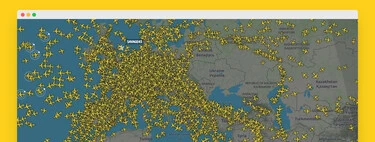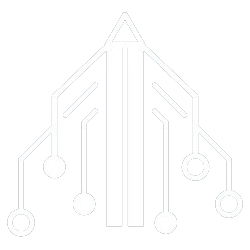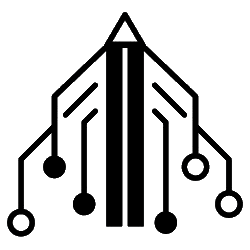The war in Ukraine, after the invasion of Russia, has already been a year old (longer if we look at the cyberwar that was already brewing before). A year of many changes for both countries and it is that, although the conflict takes place in Ukrainian territory, many Russian people They have also seen their life broken.
In addition to the obligation to go to fight in the war, of the people who have also escaped into exile to avoid taking up a weapon against their neighbors, the different measures taken by international companies on the Russian market have conditioned the daily life of the population.
To put pressure on the Kremlin government, led by Vladimir Putin, from the beginning of the invasion, many American and European companies, also technological onesthey made drastic decisions on the Russian market: close their stores, stop selling their products or stop updating their software, among others.
These decisions gave a certain air of hope. At least, the Ukrainian politicians were insisting on various companies to stop their activity in Russia to see if this had an impact on Putin’s decisions: with this pressure from a globalized market where consumption is very importantRussia could change its strategy.
But for the moment, the war continues. The pressure has not been enough. The Russian population that tried to demonstrate to stop the deaths that were to come with the conflict were repressed and we can see that there is little information about what life is like inside Russia. A key aspect in all this is that Russia had been working for years for its “cyber sovereignty” so as not to depend on the US tech giants and this has seemed to be a success, at least for Putin’s plans.
The “freedom” of free software
We know that Putin has been committed to free software for a long time and that seems to have benefited Russia. The bans (the brake on the marketing of new software or updates) have led Russia and its partner China to replicate technology that they can no longer easily or legally obtain.
On the other hand, apart from proprietary software, we find that a lots of high-end, sophisticated technology continued to cross its borders because open source code continues to circulate around the world without hindrance. Australian journalist Simon Sharwood asked the Linux Foundation and the Apache Foundation if they had considered taking steps to prevent Russia from accessing certain software tools but received no response, he says.
Coraline Ada Ehmke, an open source expert, went so far as to say in 2020 in a speech on ethics where she recalled that, by design, “the definition of open source allows the use of software for any purposeincluding specifically for evil.” It itself has ethical licenses that resemble conventional open source licenses, but add restrictions on activities such as acts of war or “monitoring or tracking people for profit.”
Actions taken in the technological field

A year ago, even the European Union announced sending cyber-operations experts to Ukraine to help combat Russia’s digital invasion. In a list of “suggested actions” in February 2022 (a document first leaked from Reuters and then shared in many outlets, even though neither the Kiev nor Washington authorities confirmed that list was true) sent to the administration of the President Joe Biden, the government of Volodymyr Zelenskyy called for “a ban on the supply of any merchandise, including hardware and software“. The economic and diplomatic offensive against Moscow was intended for the Putin government to end this war.

Also Ukraine requested “a ban on US companies supplying and updating software for the benefit of Russian consumers”. Already at that time, it was not so clear that this action could be really effective and now, 12 months after the start of the war, it is still not clear.
All this also left a lot of unemployment and an unprecedented economic crisis in the country with the ruble at a very low value. He technology sector wanted to put pressure on the Moscow government with different tactics such as blocking software updates, leaving citizens without access to many technological services or with hackers who can cyber-spy on Russia and protect Ukraine in the cyber war parallel to the war.
Russia had been known to prefer free software or have Chinese software over American software for a long time and that invested great efforts in its cybersovereignty. And this seems a success, seeing that technological pressure has not stopped the Kremlin’s plans.

It must be said that earlier this year information was leaked that Intel and Microsoft, two US technology giants, had allowed certain updates to their users in Russia. Although the Intel website is still closed to users from Russia, people could get to the Intel download portal from a search engine and thus use their services even if they are in Russia. The company later said that “access to resources that meet driver update needs (…) are part of Intel’s warranty obligations.”
As for Microsoft, Russian media has reported that some of these restrictions were lifted at the end of 2022 and that Windows 11 updates could be downloaded and installed by people in Russia. Microsoft has denied it. “We are complying with EU, UK and US sanctions.“, the Redmond company told The Register.
Little information from Russia

Obviously, the Kremlin government is careful not to reveal its internal plans. In general, it has always done so, and more so now in times of war. Even we have the disturbing news of dead people.
Marina Yankina, a Russian defense official, was recently found dead after falling from a window in St. Petersburg, local media reported. What is disturbing is that the death of Yankina, who headed the Financial Support Department of the Russian Defense Ministry, was linked to a series of mysterious deaths of Russian personalities in similar ways and some of these people had spoken openly of their discontent with the conflict, according to The Newsweek.

Even so, something is known about the Kremlin’s preferences for cyber sovereignty in order to be independent of US and European firms. Historically, Moscow is not characterized by having very diplomatic relations with a large part of the largest countries in the world and it had been preparing its cyber sovereignty for years. He has taken steps for a long time so as not to depend exclusively on services arriving from countries with which it maintains a complicated relationship, such as the United States.
A Kremlin independent of big American tech
We remember decisions made by Putin’s government throughout its history that have led it to have a certain resistance to all attempts for putting technological pressure on the Russian government coming from the tech giants.
For example, at the end of 2010 the Kremlin government confirmed a piece of information that was circulating: it had begun to implant free software, such as Linux, on its computer equipment. He said at the time that the plan was to finish in 2015. The government of the russian federation announced that it would develop its own license system for their computers.
In 2016, the Moscow government committed to removing Microsoft services, as published by the Free Software Foundation Europe. This promise he kept with the passage of time. The replacement for Windows would not be a self-development as the Chinese government would have decided, but rather the Kremlin announced that it would use Astra Linux, an exclusive distribution of the open source operating system. Astra Linux is a derivative of Debian developed by Russian company RusBITech since 2008.
Another measure of the country regarding its cybersovereignty can be found in that it has been wanting to stop software that comes from other countries for some time. In 2019, the Duma, the main legislative chamber of the Russian Federation, approved a bill to impose, as of July 2020, the pre-installation of software developed in Russia in all those devices that intend to be marketed in the country, from PCs to smartphones, including tablets and smart TVs.
At the same time, Russia maintains its good relations with China. And in this global world in which we live, where China is the country with the most inhabitants in the world, it is not easy for big tech to leave that market. Microsoft has not announced the end of its business in China, for example, on the contrary, it has promised to expand its business in the country, as announced at the end of 2022 by Satya Nadella, the CEO of Redmond. In a Chinese-only ad, the company said in September it would expand its campuses in Beijing, Shanghai and Suzhou and would continue to increase its workforce in China.
In March 2022, now a year ago, it was published that Russia was preparing to disconnect from the internet, as indicated in a circular published by the Russian Ministry of Statistics. According to the Russian daily Kommersant, the Russian government had “instructed all state websites and services to switch to the Russian domain name system before March 11“. The theoretical objective? According to the Russian rulers, to protect themselves from external cyberattacks and avoid foreign dependencies. The real one? Probably, to implement a filtering system similar to the one China has with its ‘Great Firewall’. The consequences? Numerous and unpredictable.


